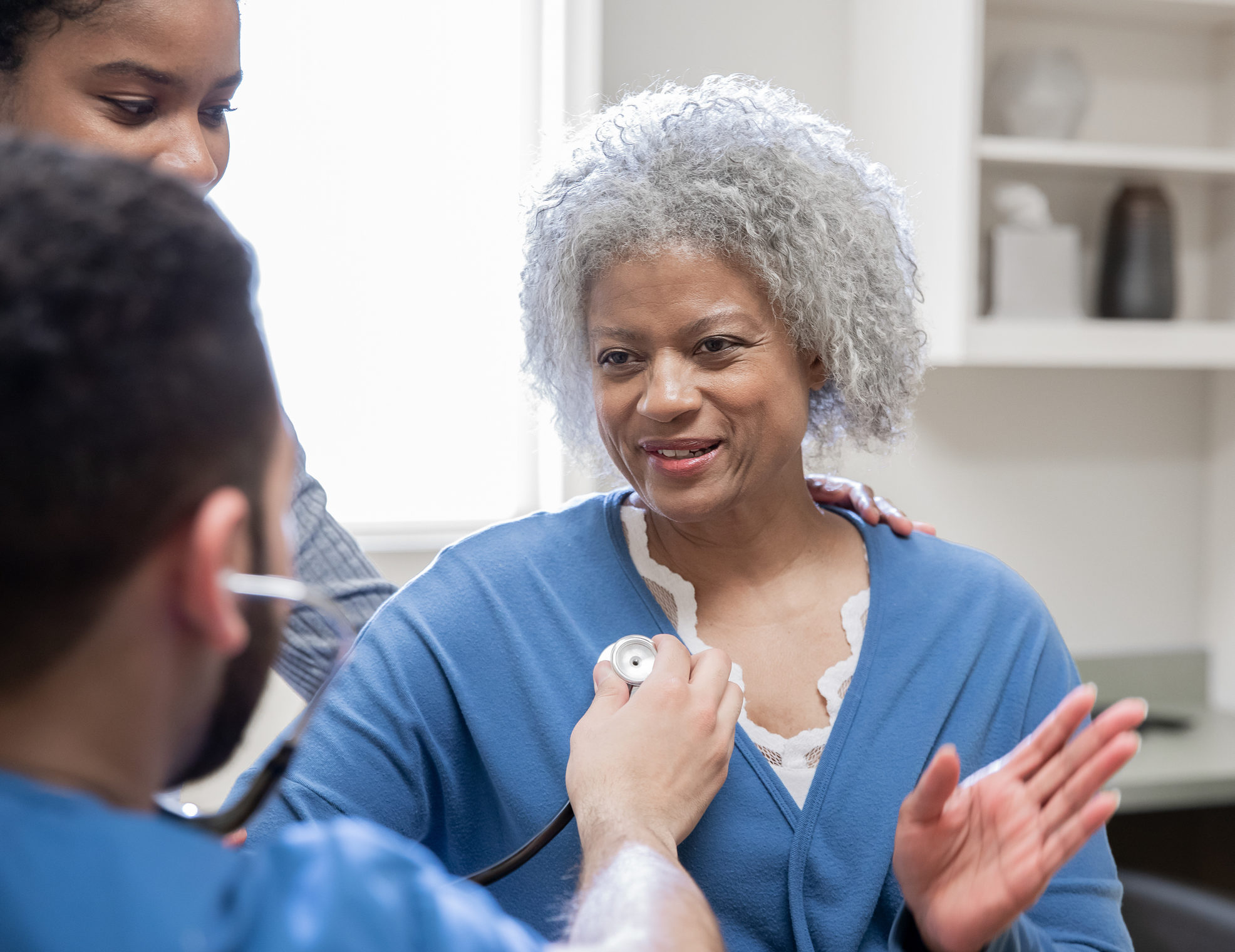Good health in later life for older women
Older women are more likely than men to have multiple health problems and chronic health conditions, including arthritis, high blood pressure and osteoporosis, according to a report by the Kaiser Family Foundation.
There is a lot you can do to increase your chances of staying healthy as you age. See your health care provider regularly. Even if you feel perfectly healthy, you should see your primary care doctor or another health care provider at least once a year for a checkup. Certain screenings can help diagnose health problems early. Ask your health care provider which tests are right for you. The American Geriatrics Society’s Health in Aging Foundation recommends the following checkups.
Diabetes – If you haven’t been checked for diabetes recently, it is recommended that you do so. Older women who have high blood pressure, high cholesterol, or a family history of diabetes should get checked every three years.
Blood pressure – High blood pressure, also known as hypertension, affects tens of millions of adults in the United States. It increases the risk of life-threatening conditions including heart attack and stroke. But high blood pressure rarely causes symptoms. A blood pressure measurement helps diagnose high blood pressure early, so it may be treated before it leads to serious complications. Have your pressure checked by your doctor at least once a year.
Dental – At least once a year, have your teeth cleaned and examined for cavities and signs of mouth disease, including cancer. If you wear dentures, get them checked regularly to make sure they still fit properly.
Hearing – Get your hearing checked every three years after age 50. More frequently for those with known exposures or risk factors associated with hearing loss.
Vision – Comprehensive eye examination that includes visual acuity testing and dilation every 1 to 2 years for all adults 65 years or older who do not have risk factors or more frequently if risk factors are present.
Bone health – As people age, they often lose bone mass more quickly than they can replace it, so their bones can become porous and brittle. If left unchecked, this bone loss can lead to osteoporosis, defined as reduced bone mass and poor bone quality. The disorder makes bones weak and prone to fracture. People who have osteoporosis have bones that can break with even the mildest impact. Medicare pays for an osteoporosis screening every two years. Ask your health care provider if you need screening or therapy. Research suggests that many older adults aren’t getting enough calcium. Try to get 1,500 mg of calcium – with vitamin D – each day. Weight-bearing exercises, such as walking and strength training, are also good for your bones.
Depression – If you feel down, sad, or hopeless for two or more weeks, or have lost interest in things you once enjoyed, talk to your health care provider about treatment.
Sexually transmitted infections – If you are sexually active but not in a monogamous relationship, these screenings are important at any age.
Vaccinations – Flu: Every year. | Pneumonia (pneumococcal conjugate and pneumococcal polysaccharide): Ask your health care provider about when to take the two vaccines. | Tetanus shot: Every 10 years. | Shingles (herpes zoster): Once after 60. | COVID-19: Two doses, 3-8 weeks apart, followed by an updated (bivalent) booster shot after six months.
The Philadelphia Department of Public Health provides a range of women’s health services at eight city health centers. For information, call 311 or go to phila.gov.
Source: The American Geriatrics Society




